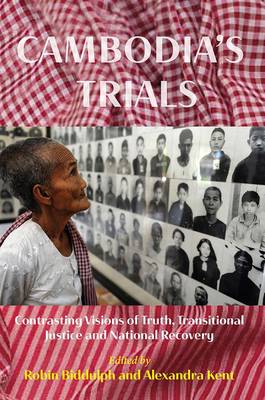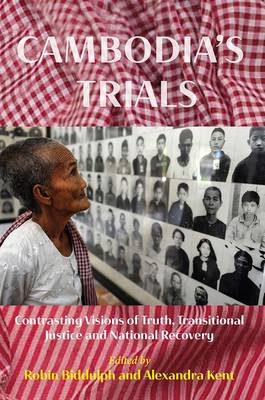
- Afhalen na 1 uur in een winkel met voorraad
- Gratis thuislevering in België vanaf € 30
- Ruim aanbod met 7 miljoen producten
- Afhalen na 1 uur in een winkel met voorraad
- Gratis thuislevering in België vanaf € 30
- Ruim aanbod met 7 miljoen producten
Zoeken
Cambodia's Trials
Contrasting Visions of Truth, Transitional Justice and National Recovery
€ 131,45
+ 262 punten
Omschrijving
More than four decades have passed since the end of Khmer Rouge rule in Cambodia in 1979. Even so, the country is still coming to terms with the destruction wrought in the decade when the Khmer Rouge won and held power and, thereafter, during their guerrilla resistance to the new regime in Phnom Penh until 1998. The Khmer Rouge Tribunal (or Extraordinary Chambers in the Court of Cambodia, ECCC), established in 2006 to bring the Khmer Rouge leadership to justice, has long been the focus of scholarly attention in Cambodia's recovery. In many ways a product of the 1990s, a time when liberal democracy appeared to be on the rise both in Cambodia and internationally, the ECCC was imagined as a 'Transitional Justice' initiative - while delivering justice it should also ease the transition to liberal democracy. This compelling study argues that approach is dated. The political circumstances in which the ECCC was born have changed profoundly, both globally and locally. No longer can Cambodia's current situation be analysed solely in terms of transitional justice narratives or the work of the ECCC. Other ways in which Cambodians have come to terms with their past, and built new lives, must also be considered. Decentering the ECCC in the scholarly narrative of Cambodia's recovery, the volume's authors offer fascinating new insights into the Khmer Rouge period and more recent years of social, cultural and political change in Cambodia.
Specificaties
Betrokkenen
- Uitgeverij:
Inhoud
- Aantal bladzijden:
- 400
- Taal:
- Engels
- Reeks:
Eigenschappen
- Productcode (EAN):
- 9788776943301
- Verschijningsdatum:
- 31/10/2023
- Uitvoering:
- Hardcover
- Formaat:
- Genaaid
- Afmetingen:
- 152 mm x 229 mm

Alleen bij Standaard Boekhandel
+ 262 punten op je klantenkaart van Standaard Boekhandel
Beoordelingen
We publiceren alleen reviews die voldoen aan de voorwaarden voor reviews. Bekijk onze voorwaarden voor reviews.







